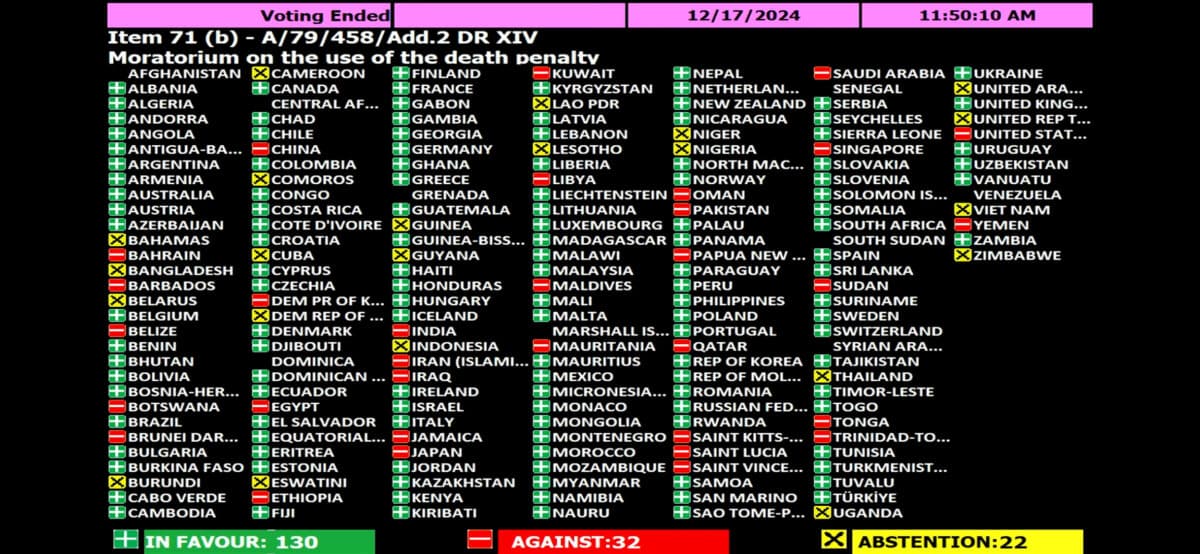Japan executions “a step backward for Asia”
Asia
Japan’s Justice Minister Keiko Chiba (photo) announced on Wednesday that she had just witnessed the hanging of two convicted murderers for whom she signed execution warrants.
Chiba, who had previously opposed capital punishment, said that she would establish a study panel on the death penalty and allow journalists into the death chamber. But abolition “will be something for this country’s people to decide, if after various discussions the majority of public opinion is for the death penalty to be abolished,” she said, according to Yomiuri Shimbun newspaper.
The executions – the first in one year in Japan – were severely criticised by human rights defenders.
World Coalition member organization Centre for Prisoners’ Rights (CPR) regretted that Chiba took so long to take measures tackling the secrecy that surrounds the death penalty in Japan. “Initiating the discussion ordisclosure of the information should have been done far earlier, not only after claiming lives of the two,” CPR said in a statement.
In a joint open letter to Chiba, CPR secretary Maiko Tagusari and Souhayr Belhassen, president of the International Federation for Human Rights, condemned the executions. “Our organisations are deeply disappointed that you, as a former member of the Japanese Parliamentary League against the Death Penalty and a lawyer with strong human rights credentials, decided to sign the orders for execution,” they wrote.
Like Taiwan, Japan breaks unofficial moratorium
Another World Coalition member, the Taiwan Alliance to End the Death Penalty (TAEDP), labeled the Japanese hangings “a step backward for Asia”. The organisation established a parallel between Japan and Taiwan,where executions resumed after a four-year unofficial moratorium. “Like the Japanese minister of justice, Taiwanese Minister of Justice Tseng Yung-fu had previously spoken in favour of scrapping the death penalty, and has set up a committee under the ministry to research capital punishment. Both ministers once expressed serious reservations about capital punishment, yet later signed execution warrants — and firmly stood by their actions,” TAEDP regretted in a statement.
Amnesty International, which recently exposed the damage the Japanese capital punishment system did to the mental health of those sentenced to death, expressed concern that moreexecutions may happen soon as 107 people are on death row in Japan. “A working group to discuss the death penalty is not enough. There needs tobe an open and public debate and an immediate moratorium on executions while the discussion takes place,” said Donna Guest, deputy director of Amnesty’s Asia Pacific programme.
At the diplomatic level, the European Union’s foreign policy chief, Catherine Ashton, “deeply regretted” the hangings of Hidenori Ogata and Kazuo Shinozawa and called on Japan to establish a moratorium on executions to “bring Japan into line with the worldwide trend away from the death penalty”.







